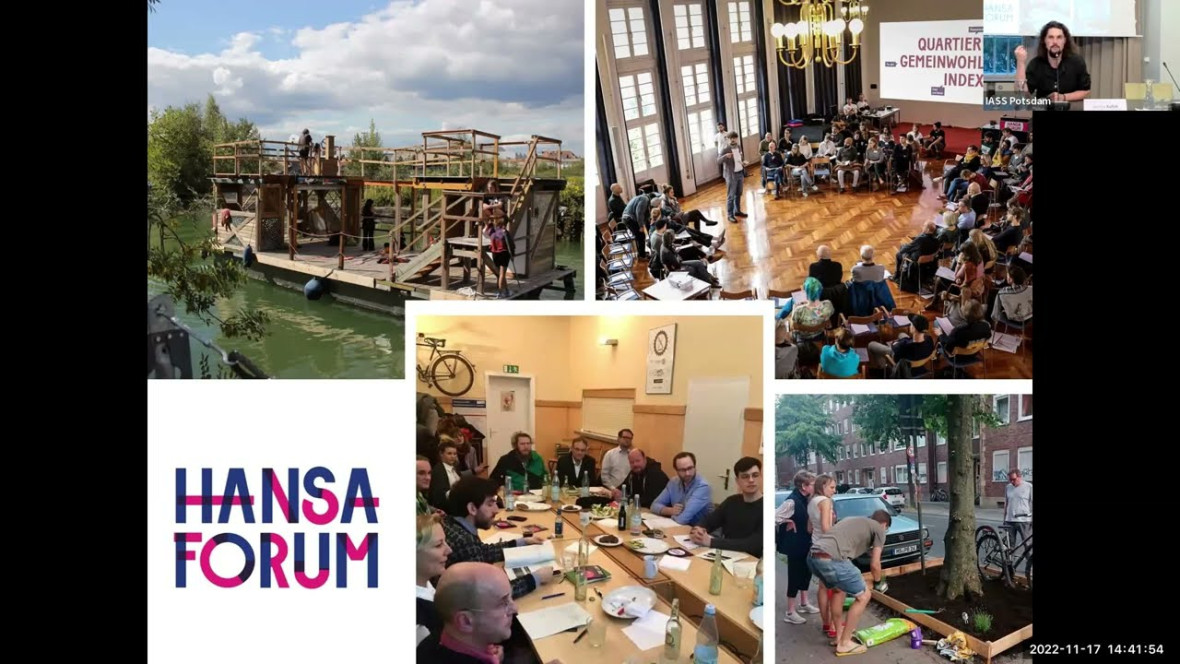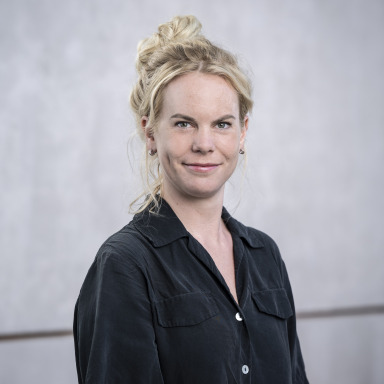Commons-public partnerships Boost Bottom-up Social-ecological Transformations
13.03.2023

We often look to Berlin and Brussels to push ahead with the social-ecological transformation. And there is no question that the big decisions are made there – be it on subsidy programmes, project funding or regulatory measures governing manufacturing and trade. But we’d be overlooking some great potential if we assumed that these are the only places where change takes shape. Plenty of ambitious and inspiring socio-ecological projects are born far from the centres of political power, in community halls, town assemblies, youth centres, within neighbourhood initiatives and movements, and in community-supported farming projects.
The social-ecological transformation is gathering pace across society through public petitions, mobility referendums and popular initiatives for more local climate policy. And more and more people are willing to invest a significant share of their free time to back these ventures and make change a reality in everyday life. Along the way, they learn important forms of self-organization and collective decision-making. In other words: these people help to build a living local democracy. Often, these initiatives deliver outcomes that benefit the common good by generating and sharing new knowledge or through solidarity economic activities, for example. In doing so, they lend their weight to the growth of the commons, common goods and self-governance.
Local civil society initiatives do not run counter to or compete with the larger political transformation programmes, for example in the area of the energy and food transitions or the circular, solidarity-based economy. On the contrary: With the power and participation of civil society actors, these programmes can be brought to life within and through communities and developed to meet local needs.
Nonetheless, community-led initiatives and governmental frameworks rarely come together at present. This is due to a variety of reasons, ranging from a lack of awareness and failure to recognize opportunities for cooperation, through to structural barriers and a chronic shortage of volunteers. Efforts to involve local communities in state-led processes aimed at shaping transformations frequently address and engage with individuals while ignoring existing collective structures and their activities. But it doesn't have to stay that way. Commons-public partnerships are a flexible model for cooperation that can harness the power of communities and grassroots actors and forge links to transformation programmes established by parliaments and government ministries.
What is a Commons-Public Partnership?
Formally, a Commons-Public Partnership (CPP) exists when a commons association enters into a contract or agreement with the public sector. So on the one hand, we find an organized group doing commoning - and on the other hand, a town, community, or federal state. In their agreement, they jointly regulate as peers the provision of land and resources by the public sector and the performance of clearly defined activities by the commons association in a way that promotes and anchors commoning in the medium to long term.
CPPs are tailored locally, contextually, and sector-specifically, and can take very different forms. The cooperation agreement, the founding document of a CPP, can give rise to completely new entities of ongoing co-governance, such as education and meeting spaces, neighbourhood centres or permanent commissions.
Commons-public partnerships in the area of urban development are already showing how cooperation between state and community-based actors can be used to tackle complex transformation challenges. The benefits are apparent on several levels. Enabling community involvement in public transformation and development projects strengthens local structures and raises their standing. This contributes to their permanence and perpetuates action for the common good, communing, and living democracy in local contexts. Likewise, this cooperation enables local authorities and political actors to draw on the situated knowledge and know-how of initiatives and to work towards transformation goals that could not be attained with a top-down approach to planning and implementation. One example of this is a network of local businesses in Chicago that want to connect and close their material loops. Led by the initiative PlantChicago, the network is already making progress towards this goal.
Media
Fuchsmühle Waldkappel transformation project in Hessen

In Waldkappel near Kassel, Germany, the Fuchsmühle initiative has been developing basic infrastructure and neighbourhood projects focussing on transformations in daily life since 2020. Its projects include a food coop, a car sharing network, social and swapping festivals, as well as local reforestation activities.
Media
B-Side Hansaforum transformation project in Münster

Similar work is done by the team behind the neighbourhood centre B-Side in Münster: Neighbourhood spaces and workshops help residents to build solidarity structures that fit local contexts and improve resource-efficiency in households and communities. All of these projects show that creativity and empowerment on the ground can be powerful drivers of social-ecological transformation. For example, the Wassertanke project in Münster was set up to provide public rainwater storage tanks in the community and has been so well received that it is being replicated in other German cities.
Commons-public partnerships are already possible today. Each and every municipal authority and state ministry in Germany can enter into an agreement with a non-state partner – a community-supported farming project, a youth centre, or an urban gardening collective – in which they jointly define and pursue goals in support of a local socio-ecological transformation. There are just two prerequisites: the community initiative must form a legal entity (a registered association, for example) and both parties must have the courage to experiment. This RIFS Discussion Paper that I co-authored with Paul Jerchel offers an overview of what this looks like in practice and examines the practical challenges and the diverse potentials of commons-public partnerships.
If you want to learn more about some of the projects already operating in Germany, this is a good place to start. The recordings linked to here are from the November 2022 CPP Conference at RIFS, which brought together practitioners and researchers from across the country to network and share ideas. There were also two inputs on legal aspects of cooperation by Tim Wihl and Noah Neitzel, which are all available here on YouTube. Social and transformation researchers also offered their assessment of the concept, which can be viewed here. You can download the minutes of the conference here.
